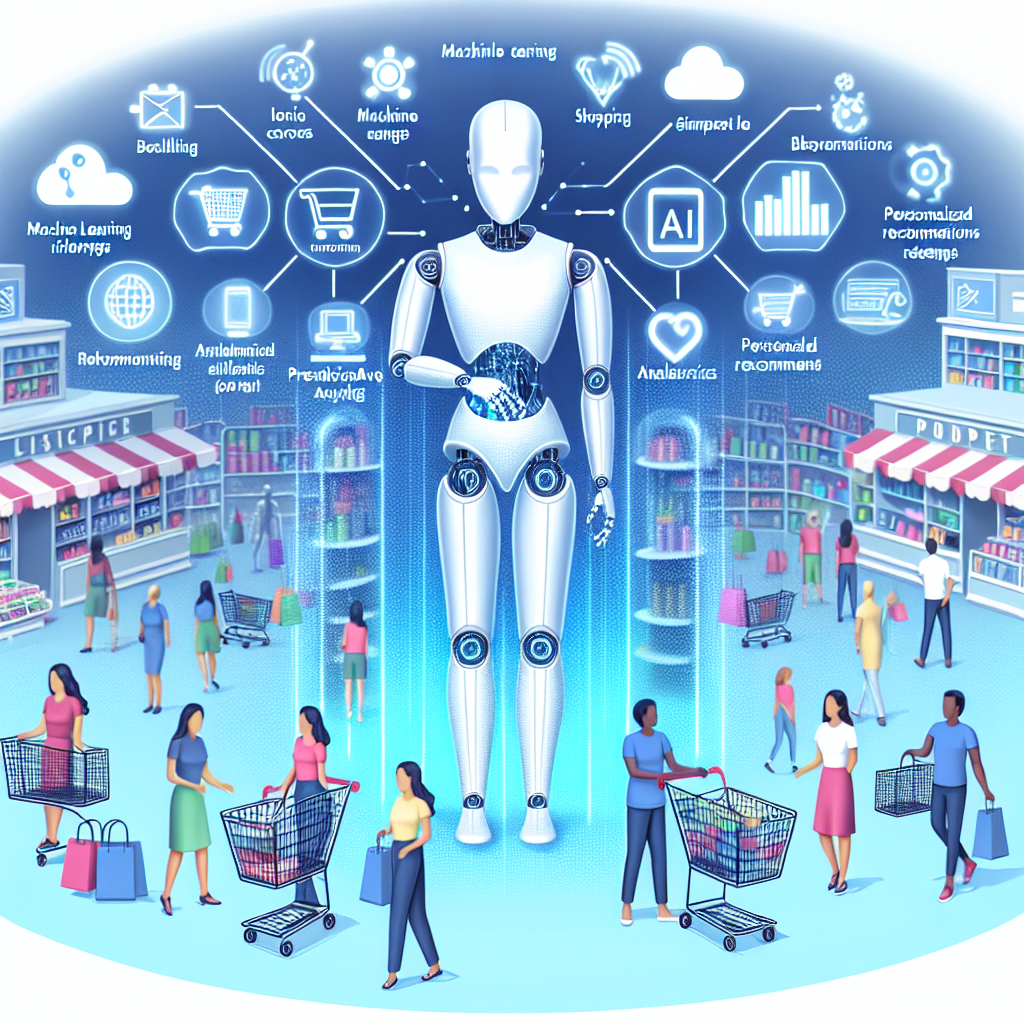Artificial Intelligence (AI) has become a powerful tool in the world of e-commerce, revolutionizing the way businesses operate and increasing efficiency in various aspects of online shopping. From personalized product recommendations to enhanced customer service, AI tools are helping e-commerce businesses stay competitive in a fast-paced digital landscape. In this article, we will explore the benefits of using AI tools in e-commerce and how they can help businesses drive growth and improve the overall shopping experience for customers.
1. Personalized Product Recommendations
One of the key benefits of using AI tools in e-commerce is the ability to provide personalized product recommendations to customers. By analyzing a customer’s browsing history, purchase behavior, and preferences, AI algorithms can suggest products that are most likely to interest them. This not only helps increase sales by showing customers products they are more likely to buy, but it also enhances the overall shopping experience by making it more convenient and tailored to individual preferences.
2. Improved Search and Navigation
AI-powered search and navigation tools can help customers find products more quickly and easily on e-commerce websites. These tools use natural language processing and machine learning algorithms to understand user queries and provide relevant search results. By improving the search and navigation experience, e-commerce businesses can increase conversion rates and reduce bounce rates, ultimately driving more sales and revenue.
3. Enhanced Customer Service
AI chatbots and virtual assistants are increasingly being used by e-commerce businesses to provide customer support and assistance. These AI-powered tools can answer common customer queries, provide product recommendations, and even process orders without human intervention. By automating customer service tasks, businesses can reduce response times, improve customer satisfaction, and free up human agents to focus on more complex issues.
4. Predictive Analytics
AI tools can help e-commerce businesses analyze data and predict future trends and customer behavior. By using machine learning algorithms to analyze historical data, businesses can identify patterns and make informed decisions about pricing, inventory management, and marketing strategies. Predictive analytics can help businesses optimize their operations, reduce costs, and increase revenue by anticipating customer needs and preferences.
5. Fraud Detection
AI tools can also be used to detect and prevent fraudulent activities on e-commerce platforms. By analyzing transaction data and user behavior in real-time, AI algorithms can identify suspicious patterns and flag potentially fraudulent transactions. This helps e-commerce businesses protect themselves and their customers from cyber threats, reduce chargebacks, and maintain a secure online shopping environment.
6. Inventory Management
AI tools can help e-commerce businesses optimize their inventory management processes by predicting demand, identifying slow-moving products, and automating reorder processes. By analyzing sales data and market trends, AI algorithms can help businesses maintain optimal stock levels, reduce excess inventory, and minimize stockouts. This leads to improved customer satisfaction, reduced costs, and increased efficiency in the supply chain.
7. Dynamic Pricing
AI-powered dynamic pricing tools can help e-commerce businesses adjust prices in real-time based on demand, competition, and other market factors. By using machine learning algorithms to analyze pricing data and customer behavior, businesses can set prices that maximize revenue and profit margins. Dynamic pricing can help businesses stay competitive, increase sales, and react quickly to changes in the market.
8. Customer Segmentation and Targeting
AI tools can help e-commerce businesses segment customers based on their behavior, preferences, and demographics, allowing businesses to target specific customer segments with personalized marketing campaigns. By analyzing customer data and predicting buying behavior, businesses can tailor their marketing messages and promotions to individual customers, increasing the likelihood of conversion and repeat purchases.
9. Improved User Experience
Overall, the use of AI tools in e-commerce can significantly improve the user experience for customers. From personalized product recommendations to enhanced search and navigation, AI-powered tools help customers find what they are looking for more quickly and easily, leading to higher satisfaction and loyalty. By leveraging AI technology, e-commerce businesses can create a seamless and personalized shopping experience that sets them apart from the competition.
FAQs:
1. Are AI tools expensive to implement in e-commerce?
AI tools can vary in cost depending on the complexity of the technology and the size of the business. However, there are many affordable AI solutions available for e-commerce businesses, and the return on investment can be significant in terms of increased sales, improved efficiency, and enhanced customer satisfaction.
2. Will AI tools replace human employees in e-commerce?
While AI tools can automate certain tasks and improve efficiency in e-commerce, they are not meant to replace human employees. Instead, AI technology can augment human capabilities, allowing employees to focus on more strategic tasks and providing better customer service.
3. How can e-commerce businesses ensure the security and privacy of customer data when using AI tools?
E-commerce businesses should implement robust security measures and compliance protocols to protect customer data when using AI tools. This includes encrypting sensitive information, regularly monitoring for potential security threats, and complying with data protection regulations such as GDPR.
4. What are some common challenges in implementing AI tools in e-commerce?
Some common challenges in implementing AI tools in e-commerce include data integration, training AI algorithms, and ensuring seamless integration with existing systems. However, with proper planning and expertise, businesses can overcome these challenges and leverage the benefits of AI technology in their e-commerce operations.
In conclusion, the benefits of using AI tools in e-commerce are numerous and can help businesses drive growth, improve efficiency, and enhance the overall shopping experience for customers. By leveraging AI technology, e-commerce businesses can stay competitive in a rapidly evolving digital landscape and differentiate themselves from the competition. As AI continues to advance, businesses that embrace these tools will be well-positioned to succeed in the e-commerce industry.

